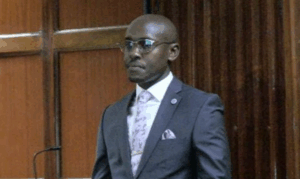Political Stability Key To Kenya’s Economic Growth Prospects In 2019

Kenyan President Uhuru Kenyatta
Most African countries are reported to have a positive economic outlook, apart from those with upcoming elections. This is according to ICAEW’s (the Institute of Chartered Accountants in England and Wales) latest report. In Economic Insight: Africa Q4 2018, launched today, the accountancy body provides GDP growth forecasts for various regions including East Africa which is forecast at 6.3%, West and Central Africa as 2.5%, Franc Zone at 4.6%, and Southern Africa at 1.2%. The report underscores political stability as a key economic driver for most African countries.
The report, commissioned by ICAEW and produced by partner and forecaster Oxford Economics, provides a snapshot of the region’s economic performance. The regions include; East Africa, West and Central Africa, Franc Zone, Northern Africa, Southern Africa.
 According to the report, political tensions have had significant impact on economic growth within the region.
According to the report, political tensions have had significant impact on economic growth within the region.
Kenya’s emergence from a period of political uncertainty should see it’s GDP growth rebound to 5.4% this year after it dropped to 4.9% in 2017 (between 2012 and 2016 growth averaged 5.5%).
Within the East African region, the narrative around political stability and growth continues to manifest with Ethiopia (7.8%), Rwanda (7.1%), and Tanzania (6.7%), which are considered to all have strong central governments, continuing to be powerhouses while Somalia (2.4%), Burundi (0.1%) and South Sudan (-3.8%) lagging behind.
According to Michael Armstrong, Regional Director for Middle East, Asia and Africa, those at the bottom of the growth rankings illustrate how large an effect political instability can have on economic prospects. “The political instability being experienced in countries like Somalia, Burundi and South Sudan clearly reinforces the strong link between political stability and economic growth,” said Mr Armstrong. “This is the opposite of countries like Kenya for instance which has stabilized ever since the end of the election period early in 2018,” he added.
Read: Kenya Among British Airways’ Ksh580 Billion Investment Plan In Africa
Political instability tends to peak around election time for some African nations. Among these, is Nigeria which is heading to the polls in February next year. There is little uncertainty about who will win elections in the Democratic Republic of Congo (DRC) in December, but political tensions are set to rise nonetheless, and are the main obstacle to the GDP growth forecast of 4.1% this year.
In far more stable territory, Ghana’s economy should expand by a respectable 5.2% this year. This is on the back of the boost the industrial sector has received from higher oil prices.
Southern Africa is again the continent’s slowest-growing region with GDP forecast to expand only 1.2% this year. Election rhetoric regarding land and property rights in South Africa ahead of polls in 2019 has spooked investors, and President Cyril Ramaphosa is finding it difficult to convince them it will be business as usual. The country is expected to post GDP growth of just 0.7% this year.
Zimbabwe’s government, meanwhile, is suffering from post-election credibility difficulties, with international lenders and investors unconvinced things have changed in Harare after violence and fraud allegations marred July’s election.
In North Africa, Libya and Algeria are scheduled to head to the polls in the near future, in December 2018 and April 2019, respectively, although Libya’s election is unlikely to go ahead. They are also, incidentally, the region’s fastest and slowest growing economies this year at 14.7% and 2.3%, respectively. Egypt, which held elections in March to overwhelmingly return President Abdel Fattah Al-Sisi to power (97% of the vote), is expected to grow by 5.3% this year. The certainty of Mr Al-Sisi’s grip on power appears to be helping the country’s economic rebound.
Finally, in the Franc Zone, which should see GDP growth of around 4.6% this year, Cameroon just returned Paul Biya (85) to the presidency. He is Africa’s second-longest serving president after 36 years in power. Despite his unpopularity and the violence that accompanied his re-election, the country is expected to post a GDP growth rate of 4.0% this year – up from 3.2% in 2017.
Elections and accompanying political instability evidently have a complex relationship with economic growth.






